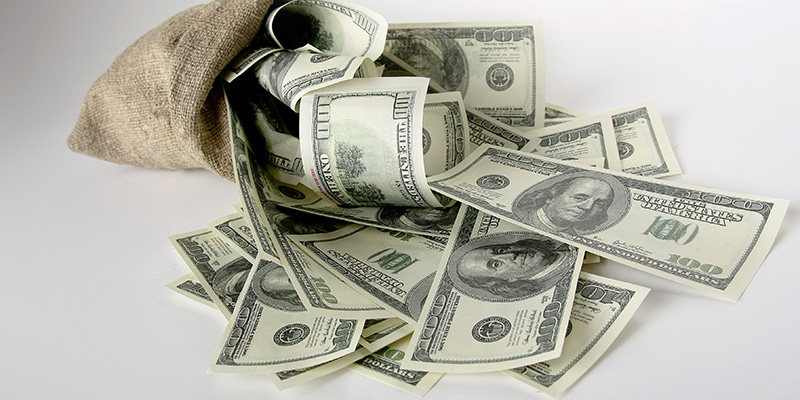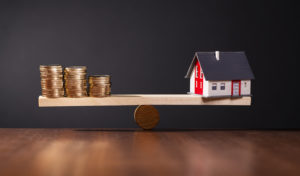Should Homeowners Contribute to HOA Reserves? Why Or Why Not?

Sufficient HOA reserves not only help your community thrive in good times. In times of disaster, your reserve fund contribution can also help the HOA get things back to normal.
Browse By Category
Sign up for Our Newsletter
Sufficient HOA reserves not only help your community thrive in good times. In times of disaster, your reserve fund contribution can also help the HOA get things back to normal.
What Are HOA Reserves?
Homeowners association reserve funds are the money (or some other form of a liquid asset) saved up in a savings account for later use. Usually, businesses and associations put up HOA reserve funds to meet any expenses that may come up unexpectedly. So, for things like sudden repairs or financial obligations, the HOA reserves act as an emergency source. As such, HOA boards manage the reserve funds separately from the operating fund.
What Can HOA Reserve Funds Be Used For?
Generally speaking, an association’s reserves are set aside to cover the cost of major replacements, maintenance, and repairs to common elements in the future. HOAs and condominium associations also use HOA reserve funds for planned renovations as well. The accrued funds in an HOA reserve can go towards major projects that the general fund cannot cover.
So, for things like large scale upgrades of amenities or community-wide renovation projects, the HOA reserve fund certainly comes in handy. Otherwise, the alternative is to raise dues or charge special assessments — hardly popular moves with the residents. Thus, if your HOA has a healthy amount of reserve funds ready, they can avoid raising dues entirely.
Why HOA Members Should Contribute to HOA Reserves
Homeowners have many things to think about. They need to take care of their own day-to-day expenses. They also need to build up their own savings, too. Plus, just like your HOA, they also need to set aside things for unexpected repairs and unforeseen expenses. So, why should a resident also need to worry about the reserve funds of their association?
After all, the regular HOA dues already go to the priority items. You have things like utility bills, landscaping and maintenance services, and other expenses that residents already pay for. They also help contribute to the management fees and insurance premiums for the HOA as well. These expenses can quickly add up, and it’s safe to say that most HOA residents are already paying their fair share.
So, where does reserve contributions factor in all of these?
The truth is that the HOA reserve fund accounting is an extremely important long-term financial tool. That holds for everyone, not just for the HOA board members. Thus, there are several important reasons that everyone should still contribute to it:
1. Protecting Property Values
 Purchasing a home is an investment and a huge one at that. One of the HOA’s reasons for existing is to protect that investment and raise its value as well.
Purchasing a home is an investment and a huge one at that. One of the HOA’s reasons for existing is to protect that investment and raise its value as well.
The association helps to protect the property values of the neighborhood by keeping them well-maintained and attractive. The maintenance and repair costs that your HOA fees pay for actually adds to the value of your home, too.
Thus, homeowners do their part in keeping property values high by paying towards the HOA reserve funds. Contributing to the reserve budget is a part of maintaining that investment and the value of the property. Even if the owner isn’t going to be living in the property when the reserves are used, they are adding value to future improvements in the community. In turn, that also helps keep the home looking attractive — increasing its chances of potential buyers.
2. A Sense of Community
Homeowners are all in this together, and it’s not just the HOA’s job to keep the community beautiful. Residents have an important role in keeping the HOA reserves healthy. Failing to see the value in reserve contributions is also missing out on an opportunity to give back to the community. It also means that the owner isn’t thinking about the unfairness of letting new owners cover the costs of needed repairs.
It’s only fair to protect new owners from getting stuck with the high expenses of major repairs, such as a new roof, just because the past owners neglected their responsibilities. After all, the past owners did enjoy the benefits of that roof, and it’s a good thing to be able to pay it forward.
3. It’s a Mandatory Requirement
Your HOA likely has reserve contributions included in the governing documents stating that they’re required. So, even if a homeowner doesn’t see the value of contributing, it’s likely mandatory that they do if they want to remain in the association. After all, the homeowner agreed to abide by the HOA’s governing documents when they bought their home in the community.
As a board member, you also have a fiduciary responsibility to collect for the reserve. Letting members know that their contribution is required is also part of your responsibility as well.
When you’re part of an HOA board, taking care of the residents in your association is only part of the equation. You also have to maintain the HOA finances, which means thinking about immediate costs as well as thinking ahead and considering any unexpected circumstances.
It’s tempting to focus mainly on the primary operating budget each year without getting homeowners to contribute to HOA reserves. After all, the current costs are more important at the moment. And homeowners are often not excited about contributing to reserves. It’s a common assumption that they won’t still be living there by the time the reserve funds can be used to benefit them. As a member of the HOA board, it’s part of your job to remind them of their responsibilities.
4. It’s Better Than Higher Dues and Special Assessments
It’s simply better for everyone to help the HOA save up bit by bit by contributing to the HOA reserve funds. So, when the time comes that your HOA needs that money now, it’s just a simple matter of dipping into the reserves. It’s certainly more convenient than raising dues exponentially or charging special assessments and asking residents to pay them because you need them now.
How Do You Calculate HOA Reserve Contribution?
The reserve contribution HOA communities must collect is anything but arbitrary. As a board member, it’s part of your job to allocate a section of your budget to the reserves. From this budget, you will know how much to charge each homeowner in monthly dues.
Generally, your reserves should make up about 15 to 40 percent of your dues. But, even that is only a very rough estimate that does not necessarily apply to all associations.
Proper HOA reserves calculation greatly relies on a well-executed reserve study. A reserve study takes the condition of your common elements into account, estimating how long before you need to repair or replace them and how much that will predictably cost.
Let’s say your reserve study determines that the elevators in an association building will need replacing in 20 years. If the estimated cost of replacement is $100,000 (for two elevators), you will need to set aside $5,000 every year to meet that projection when the time comes.
Most associations will have more than one asset or common element to budget for in the reserves, though. Assets deteriorate every day all at the same time, so you don’t have the luxury of budgeting for one element at a time.
What Is the Ideal HOA Reserve Funding Percent Level?
How much should an HOA have in reserves? Preferably, your association should maintain a fully funded reserve. What does a fully funded reserve mean? It simply means your reserves have the ability to cover 100 percent of your association’s foreseeable expenses over the next 20 to 30 years.
Of course, not all associations can do this. In fact, many suffer from underfunded HOA reserves, which means they have reserves below 70 percent funding. If you can’t have a fully funded reserve, it is wise to at least aim for 70 percent or higher.
Factors That Can Influence Reserve Contributions
Apart from the condition of your common elements, there are three other factors that can affect reserve contribution calculations:
1. Your Current Percent Funded Level
If you are starting with a low percent funded level, say 40 percent, then you will need to collect higher reserve contributions to reach a satisfactory level. This is why it’s important for associations to create a reserve fund from the very beginning. It’s much easier to maintain HOA reserves when you have been funding it right from the get-go.
2. Your Goal
If your goal is to reach full funding (1oo percent), then you will likely need to collect higher reserve contributions. This is in contrast to baseline funding, which is the bare minimum that only requires you to maintain a reserve level above zero. Keep in mind that baseline funding will usually force you to impose special assessments or take out a loan to pay for major expenses.
3. Economic Factors
 Inflation can greatly impact replacement cost, thereby affecting reserve fund contributions.
Inflation can greatly impact replacement cost, thereby affecting reserve fund contributions.
Adjusting for inflation is also why it’s essential to update your reserve study every year and perform one every few years. Even if you keep your reserves in a savings account, the interest you earn from that account likely won’t be enough to cover the cost of inflation.
Are Reserve Studies Required?
Some states make it mandatory for associations to perform reserve studies. There are differing reserve study requirements by state, though. For instance, California law dictates that HOAs must do it every 3 years, whereas HOAs in Nevada must do it every 5 years.
It is important to check your own HOA reserve fund laws to ensure compliance. Similarly, your governing documents may have something to say about reserve funding and reserve studies. Always check your bylaws and CC&Rs to stay out of potential liability.
Remind Homeowners to Contribute to HOA Reserves
Sometimes, homeowners just simply forget that HOA reserves are a thing. Help them to check out your governing documents if they aren’t sure about how to contribute to HOA reserves. And, if you need help setting this up, an HOA management company can help.
Start your search for the best HOA management company in your area today. With our comprehensive online directory, it’s easier to look for a company that suits your needs and budget.
RELATED ARTICLES:
- HOA Reserve Study 101: Does Your Community Need It?
- Investing HOA Reserves Funds The Right Way
- The Ins And Outs Of Covenant Enforcement For Your HOA
Trending Now
Related Article
Sign up for Our Monthly Newsletter
Sign up below for monthly updates on all HOA Resource
















